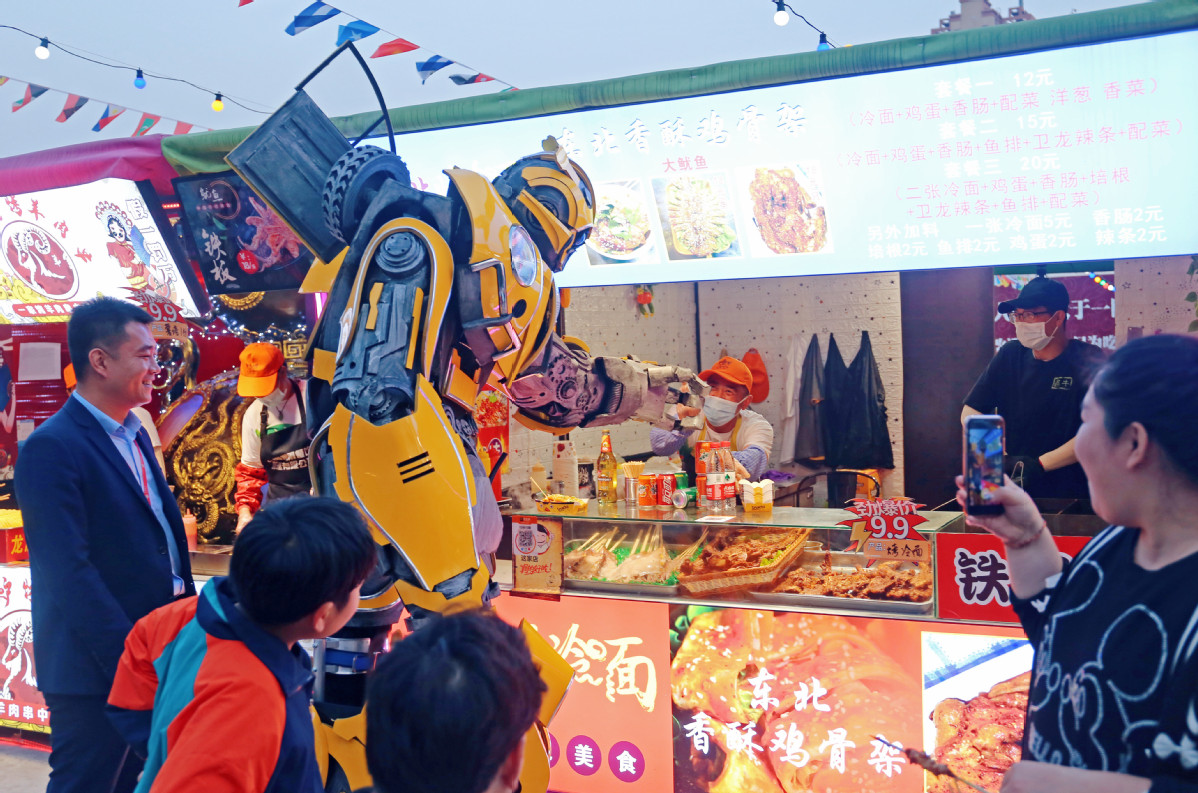One door shuts, another opens for MSME owners


Amid adversity and all-around uncertainty, China's small businesses seem to have discovered hope, courage, adaptability, perseverance, resilience and an ability to make new beginnings, which makes me wonder if the saying "when one door closes, another opens" is true after all.
Perhaps, supportive and timely government measures have given micro, small and medium-sized enterprises-MSMEs-just the kind of push they needed to turn COVID-induced "crisis" into "opportunities".
Take my Hefei, Anhui province-based friend and restaurateur Christine. Her business, a 10-square-meter home food restaurant, got savaged by this year's COVID outbreaks and the attendant restrictions.
Christine's mom doubles up as the chief chef of the small restaurant. The mom-daughter duo had invested nearly 50,000 yuan ($7,460) to stock up on food and wines in the run-up to Spring Festival in February, expecting to hit pay dirt during what's arguably the peak business period for small businesses like restaurants in China. Alas! That wasn't to be. They took a big hit.
"50,000 yuan is big deal for us because it's equivalent to more than one-third of our annual revenue. My mom and I couldn't sleep for two days. It was like the sky came crashing down upon us," Christine told me recently.
The two women didn't lose heart nor allowed the situation to make them frustrated or despondent. Instead, they conjured special packages of premade food-raw food and sauces that their customers could buy and cook dishes themselves easily at home.
When Christine shared her story on social media, it immediately struck a chord among her friends who weren't able to visit due to the pandemic. They placed orders for the offerings that Christine made available. "I remember clearly that 14 orders materialized as soon as I posted my story on my (WeChat) Moments. In a sense, those orders were like our last straws and we grasped them."
One thing led to another and soon the duo found themselves graduating to food deliveries via online channels. They offered discounts successfully, although that set them back by around 10,000 yuan. Yet, given the context of their situation, that seemed a better deal than incurring bigger losses. What's more, their strategy to plod on no matter what helped them to keep the restaurant alive.
A report from the All-China Federation of Industry and Commerce said that "amid the pandemic, many smaller businesses have begun to adjust" their business development model, and transform their operations and growth strategies. In face of future uncertainties, they are expected to have a stronger sense of crisis, be more determined to press on, and depend on their resilience and creativity.
So, I wonder, is self-help only about saving the present? My sense is, it's also about saving the future. For Joy, another friend of mine who is an agent of several Belgian and German chocolate brands, an important lesson she learned from the pandemic is to plan ahead.
She halved her purchases of chocolate stocks and depended on several logistics service providers-in case one got disrupted by the pandemic chaos, others would be her backup.
"As an agent, I used to buy goods from companies in advance and then sell them to customers. But because of logistics disruptions, the business got affected, creating cash flow problems," Joy said.
She teamed up with a group of agents to diversify into Belgian and German wines and cosmetic brands. "These wine and cosmetic products have a long shelf life and require smaller payments upfront, which has improved our cash flow to some extent."
Both Christine and Joy operate businesses that are the epitome of thousands of MSMEs that have struggled through the latest COVID outbreaks across different regions of China, survived and are now looking forward to thriving again.
The door that closed on them is behind them. And a new one in front of China's MSMEs appears to open up potential fresh opportunities.
- Reality that links macroeconomic policies to street vendors
- New plan issued to help smaller firms raise funds
- Prudent money policy, stable credit growth to sustain real economy
- Africa's MSMEs empowered to access working capital to purchase stock
- RCEP trade deal signing 'milestone' for Philippines, ASEAN: official




































